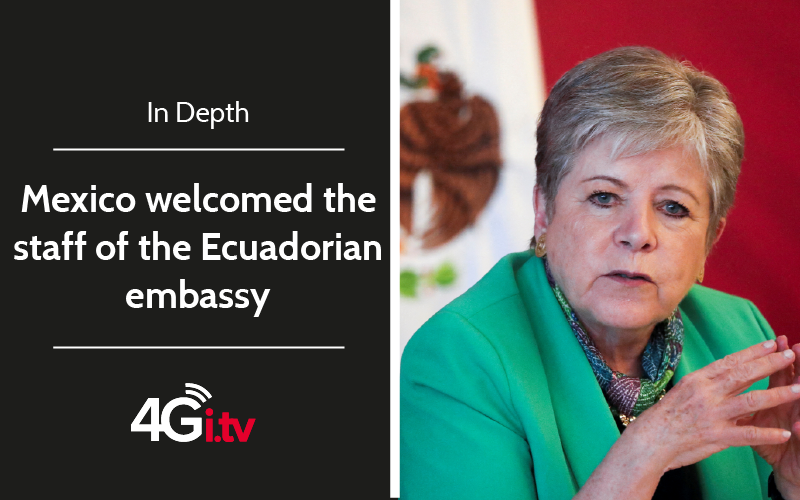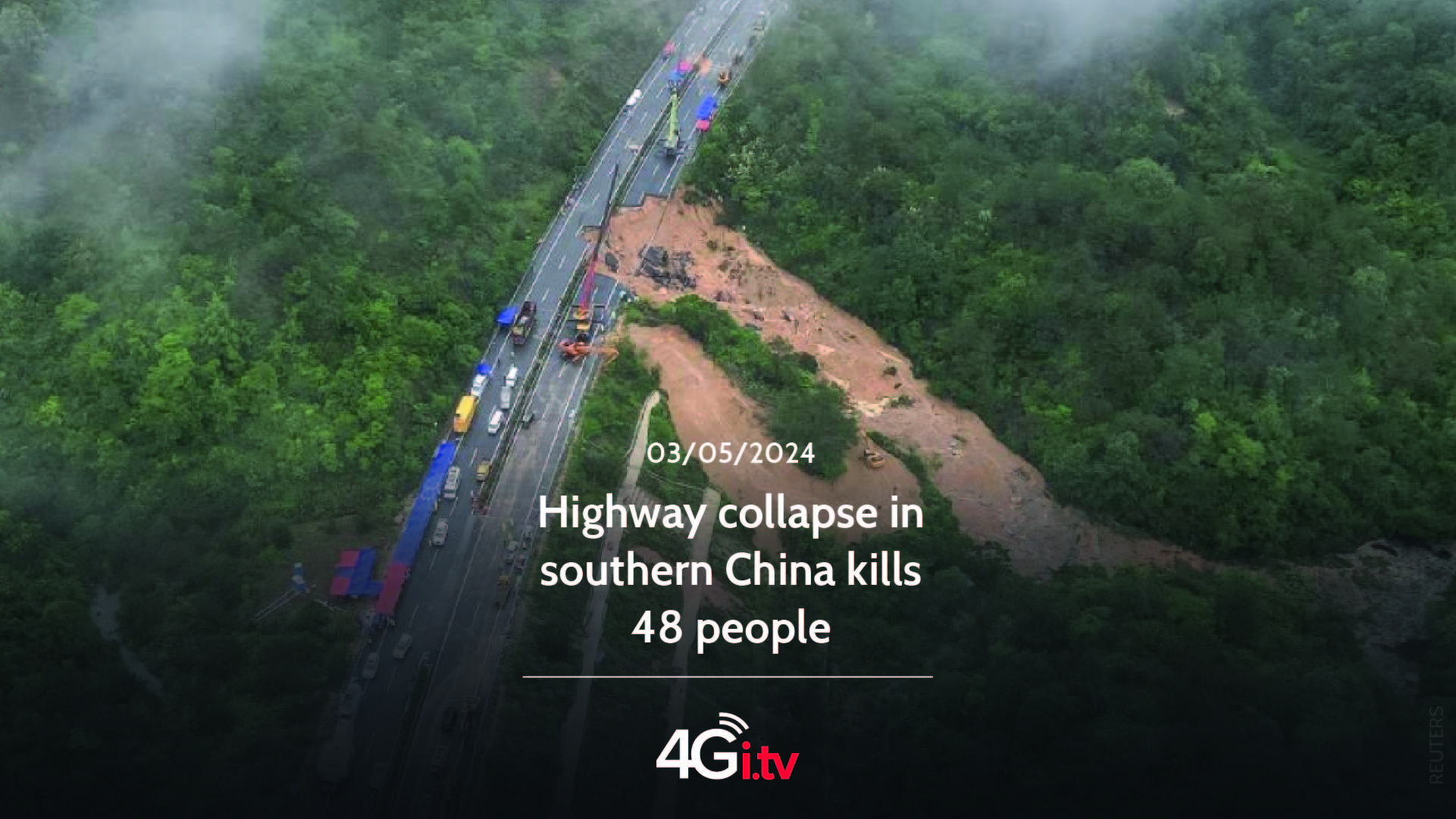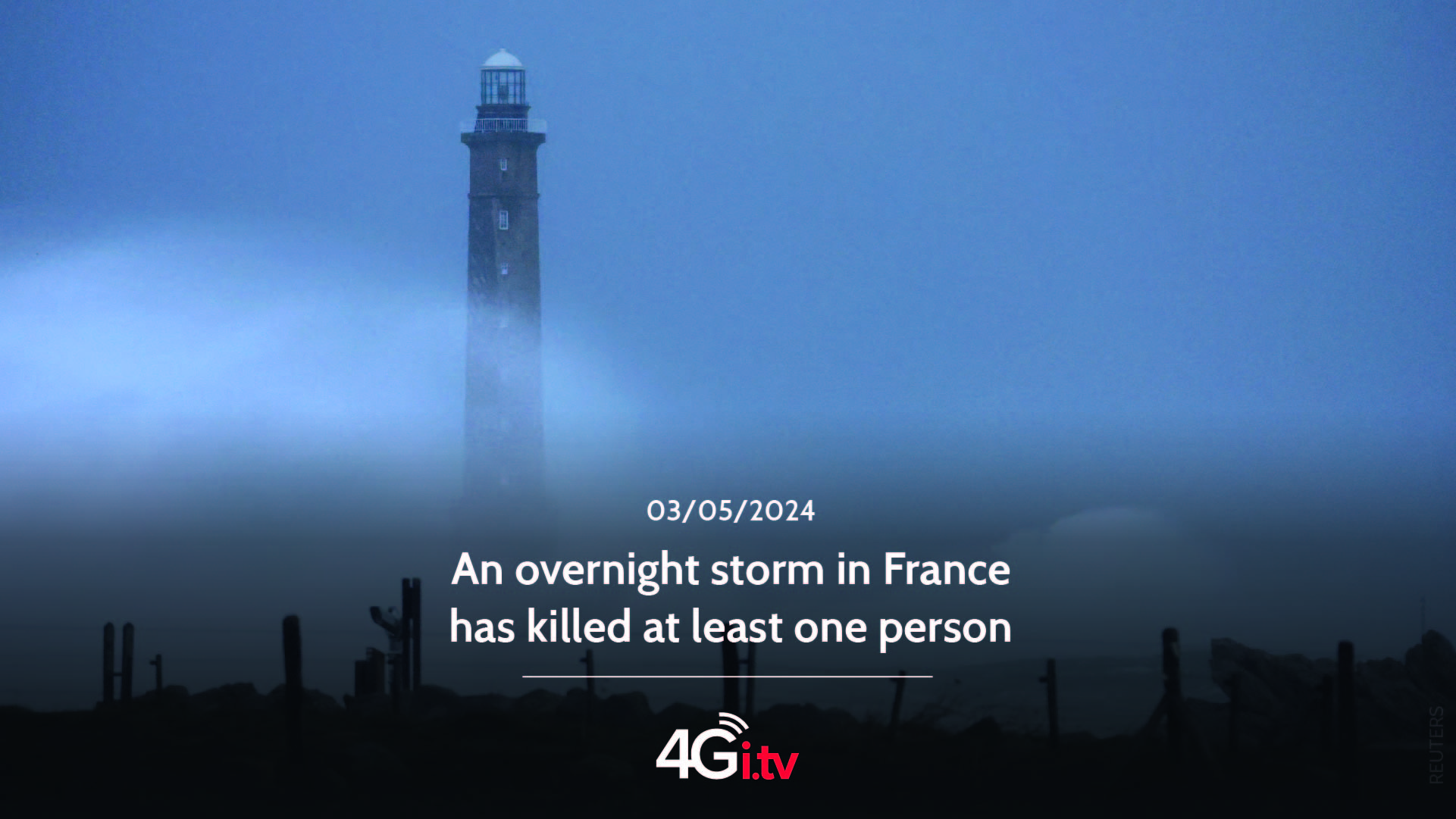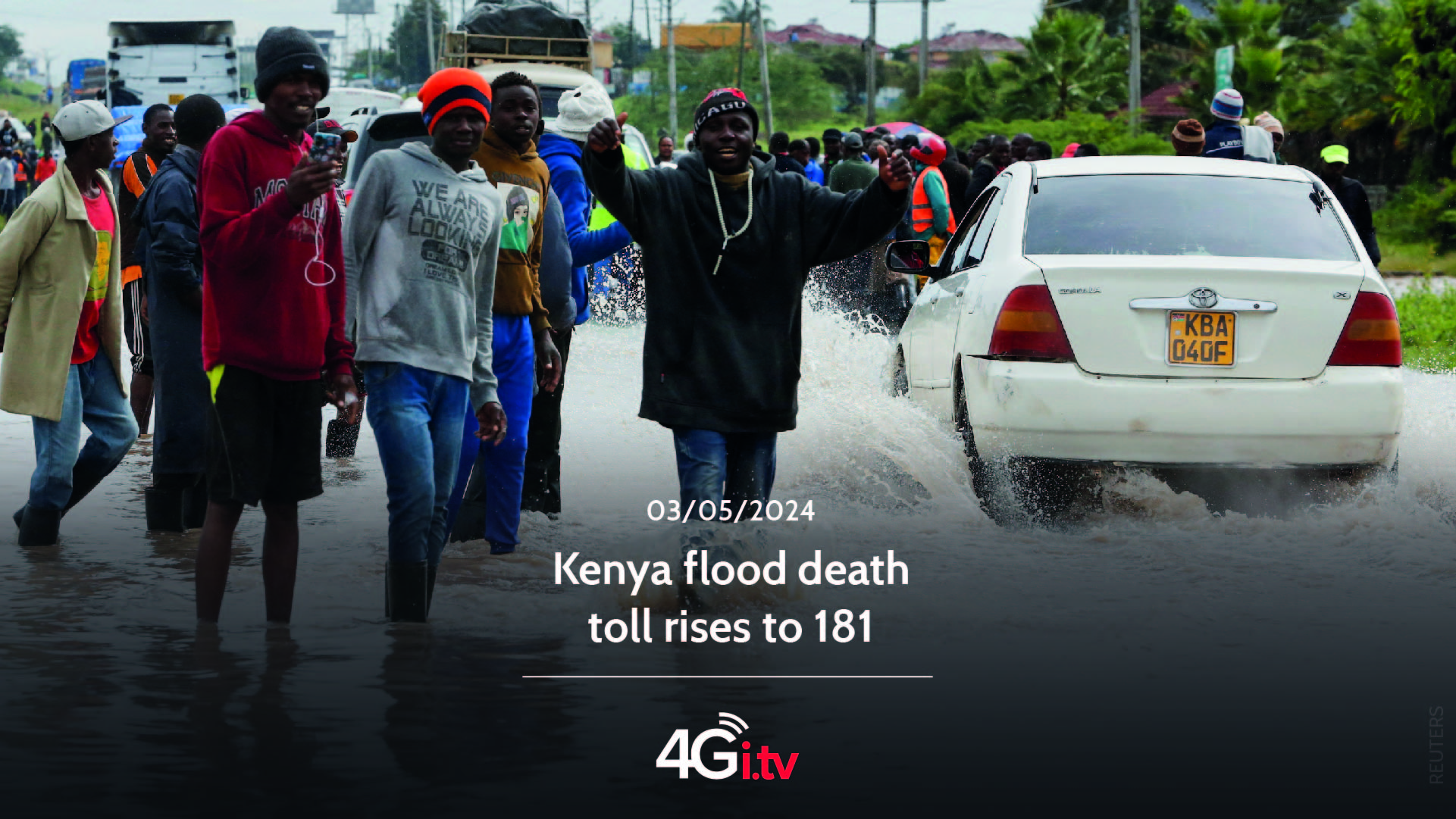Mexico welcomed the staff of the Ecuadorian embassy

Mexico welcomed the return of its embassy staff in Ecuador on Sunday, two days after police raided the facility in an act that triggered an abrupt diplomatic rift and sent global shockwaves.
Ecuadorian police and soldiers stormed the Mexican embassy in Quito on Friday night to arrest former Vice President Jorge Glas, who for months had taken refuge there after Mexican officials offered him formal asylum earlier in the day. Ecuador argued that it was illegal to grant asylum to Glas, who had twice been convicted on corruption charges.
Glas, who had a preventive arrest warrant for another corruption case, had been holed up in the embassy in Quito since seeking political asylum in December.
At the Mexican capital’s main airport, Foreign Minister Alicia Bárcena expressed gratitude for the solidarity shown to Mexico by 18 Latin American governments, plus 10 European nations, plus the United States and Canada.
While welcoming embassy staff members who were flown back to Mexico, Bárcena lashed out at Ecuador’s “physical aggression” against the embassy. She also reiterated plans to seek further international reproach for the government of President Daniel Noboa over the incident.
Mexico’s ambassador to Ecuador, Raquel Serur, supported Bárcena and said that “Noboa made a mistake in taking a decision that not only broke with all established international conventions, but also showed ignorance of the reality of his country”.
Ecuadorian police arrested Glas, who served as vice president under former leftist President Rafael Correa, on ongoing corruption charges.
Last week, Noboa’s government declared Serur persona non grata because of what it called “unfortunate” comments by the Mexican president, who intervened in last year’s presidential race in Ecuador by claiming that media manipulation following the murder of a candidate led to the defeat of his fellow leftist.
Step by step, how the diplomatic conflict between Mexico and Ecuador came about
Quito’s advance on the country’s embassy in its territory and the subsequent arrest of the former vice-president, convicted by the courts, raised tensions between the parties and led to the rupture of diplomatic relations.
Tension between Mexico and Ecuador has been on the rise in recent days, after President Andrés Manuel López Obrador issued some “unfortunate declarations” in which he questioned the result of the elections that gave Daniel Noboa the victory. This chapter was added to the one that began last December, when the Mexican Embassy in Quito received and granted political asylum to former vice-president Jorge Glas, convicted by the local justice system in corruption cases.
However, everything came to a head on Friday when the police, under orders from Noboa, burst into the diplomatic headquarters and arrested Glas on the grounds that he “clearly contravened the fundamental principle of non-intervention in the internal affairs of other states” and that he was a flight risk.
This action, which many organisations warned was an attack on the principle of inviolability enjoyed by diplomatic headquarters, led the government of Andrés Manuel López Obrador to end up breaking off diplomatic relations and ordering the departure of all its officials in the country.
Why did Ecuador decide to enter the Mexican Embassy in Quito?
Late on Friday, heavily armed police wearing balaclavas raided the Mexican embassy and arrested Glas, Ecuador’s former vice president, who is wanted on corruption charges.
Ecuador, which in early March had asked Mexico for permission to enter the embassy and arrest Glas, argued that the recent asylum decision was illegal because international law states that convicted persons should not be granted asylum.
This sudden announcement was compounded by López Obrador’s comments last Wednesday, in which he said that “in a very strange way, there were elections in Ecuador” and “a candidate who speaks ill of the candidate who is on top is suddenly assassinated, the candidate who was on top falls and the one who was second rises”, alluding to Villavicencio and Luisa González, and suggesting that the former’s crime damaged the latter.
Noboa, enraged by these comments, responded by declaring the Mexican ambassador to his country persona non grata and, ultimately, ordering the police to take action against the diplomatic headquarters.
Who is Jorge Glas and what is he accused of?
Glas served as vice president during the government of Rafael Correa – between 2013 and 2017 – and was twice convicted in corruption cases. In addition, he now faces new charges of embezzlement of public resources in the framework of the reconstruction of the coastal province of Manabí, after the 2016 earthquake.
His first conviction came at the end of 2017, when a court found him guilty of accepting bribes from Brazilian construction company Odebrecht in exchange for handing over state contracts. He was sentenced to six years in prison.
Later, in 2020, he was convicted again of using money from contractors to finance campaigns for Correa’s political movement, for which he received an eight-year sentence. Correa, who has been living in Belgium since leaving office, was also convicted in these investigations.
Both politicians have repeatedly alleged that these criminal charges are politically motivated, although prosecutors have denied these accusations.
In 2022, just over four years into his imprisonment, Glas was released but was jailed again that same year after a court ignored his lawyers’ request that he serve his sentences concurrently and benefit from parole, ruling that he needed to serve the remainder of his sentences.
After several comings and goings, the 54-year-old former official was released again in November 2022, but the opening of the new investigation against him and the denial of pre-release requested by his defence, left him cornered and led him to take refuge in the diplomatic headquarters to avoid returning to prison.
How did the region react to your arrest?
Governments from across the political spectrum in Latin America criticised Noboa’s decision, from leftist Brazil and Colombia to even right-wing governments such as Argentina and Uruguay.
Brazil’s government condemned Ecuador’s move as a “clear violation” of international norms prohibiting such an attack on a foreign embassy, while Argentina called for “full observance of the provisions” of the 1952 Convention on Diplomatic Asylum, “as well as the obligations arising from the Vienna Convention on Diplomatic Relations”.
Paraguay also said it was following the recent events with “deep concern” and called for “the reflection of the parties to respect and unrestricted respect for international law”, and Peru “rejected any transgression of the norms (…) that guarantee the procedures for good coexistence between states”.
Meanwhile, Uruguayan President Luis Lacalle Pou regretted the alterations in the “relations between two sister nations, as well as the respect for the fundamental norms of international law” and Colombia “formally requested Honduras, which holds the pro tempore presidency of Celac, to convene an extraordinary meeting to address this serious matter”.
The OAS, for its part, joined the initiative and, in addition to urging “dialogue” between the nations, announced that it would call for an emergency meeting of its Permanent Council.
How will this dispute continue?
The Mexican Foreign Ministry has already announced that it will file a complaint before the United Nations International Court of Justice for the violations against its headquarters, while Gustavo Petro added that he will appeal for the protection of Glas before the Inter-American Commission on Human Rights, alleging that his right to asylum was violated.
Ecuador’s President is willing to resolve differences with Mexico
The president of Ecuador, Daniel Noboa, shared a statement on his social networks in which he takes a position after the armed assault on the Mexican embassy in Ecuador. In the document he assures that he is willing to resolve differences with Mexico, but also stressed that his administration could not allow criminals to be given asylum.
“We could not allow sentenced criminals involved in very serious crimes to be granted asylum,” says the statement, in which the Ecuadorian president also stressed that there was an imminent risk of flight on the part of former Ecuadorian vice-president Jorge Glas.
Noboa opened his message by pointing out that the last few days have been a “complex and unprecedented situation”, which has led him to take decisions to ensure that criminals or “narco-terrorists” do not go unpunished. Although the South American leader assured that he is willing to resolve differences with Mexico, he also pointed out that “justice is not negotiable”.
In his recent message, the Ecuadorian president also cited the Caracas Agreement, the Montevideo Convention and the Vienna Convention, article 41 of which states: “Without prejudice to their privileges and immunities, all persons enjoying such privileges and immunities shall respect the laws and regulations of the receiving State. They are also obliged not to interfere in the internal affairs of that state”.
Similarly, Noboa pointed out that some Ecuadorian politicians have called on Mexico to declare war on the South American nation, as well as international economic sanctions.
Jorge Glas is medically discharged and has returned to prison
The former vice president of Ecuador Jorge Glas returned to the maximum security prison “La Roca”, after having spent a day under medical observation at the Naval Hospital in Guayaquil due to a decompensation in his health.
According to the version of the Service of People Deprived of Liberty, Glas did not want to eat since he was imprisoned on Saturday, after the Ecuadorian police raided the Mexican Embassy and captured him. At midday on Tuesday, the former vice president presented “acceptable health parameters and within the range of normality, so he can receive the corresponding medical discharge,” the document states.
A police report on the emergency in the cell where Glas is being held, as well as his team of lawyers, offered another version: Glas ingested, according to these sources, “anxiolytic, antidepressant and sedative drugs that were authorised and entered CPL No. 3 since his transfer from the city of Quito”. Prison officials found him motionless in his cell. He was immediately taken to a nearby hospital and, after being examined, was transferred back to a naval hospital.
His state of health was a cause for concern. Rafael Correa denounced that Glas had been mistreated during his arrest and subsequent transfer to prison. At a press conference at the European Parliament, the former president called on the international community to exert “the necessary political and judicial pressure” to ensure that Ecuadorian President Daniel Noboa grants safe conduct to allow Glas to leave the country.
Spanish Izquierda Unida MEP Manu Pineda has announced that he will ask the European External Action Service to visit Glas. “We are fearing for his life, we are afraid that they will commit suicide, so to speak. Glas’s lawyers, for their part, have not been sitting on their hands. On Monday they filed a habeas corpus petition arguing that the raid on the embassy was illegal and that their client was a diplomatic asylum seeker. But the Ecuadorian government shows no sign of backing down on its decision and insists that he is not a political prisoner, but a “convicted criminal, involved in very serious crimes”, and argues that there was an imminent risk of flight.
Glas had been taking refuge in the Mexican Embassy since mid-December, when a prosecutor summoned him to testify on charges of embezzlement against him, and while the process was progressing, a judge ordered him to be remanded in custody. This is the third corruption case he has faced. For one of the two previous ones, he served five years in prison. Glas, like Correa, who is in asylum in Belgium, considers himself a political persecutee who suffers from lawfare, the use of the justice system to harass opponents.
Mexico decided a week ago to grant the former vice-president political refugee status, which triggered the anger of the Ecuadorian government. Noboa was supposed to issue a safe-conduct allowing him to fly to Mexico City, but instead he ordered the storming of the embassy, an act for which there is hardly any precedent.
POPULAR POSTS
LIVE STREAM







